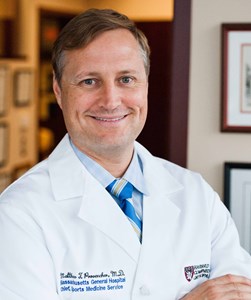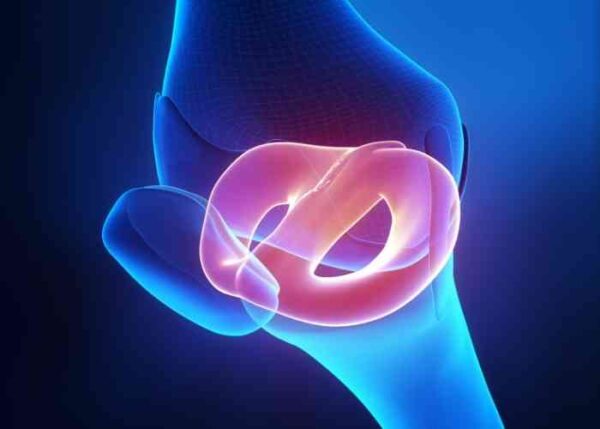Meniscus Surgeon

Are you an athlete who participates in sports that involve running and jumping? If so, you may be at risk of tearing your meniscus. A meniscus tear can occur due to a traumatic event or degeneration. Meniscus surgeon, Dr. Matthew Provencher provides diagnosis and both surgical and nonsurgical treatment options for patients in Vail who have sustained a meniscus injury. Contact Dr. Provencher’s team today!
What is a Meniscus Injury?
Located on both the inner and outer portions of the knee, the meniscus is an important structure within the joint responsible for providing a “shock absorbing” function when a patient is performing normal everyday activities and sports activities. The two “c” shaped areas of cartilage, known as the menisci, are also very important stabilizers in the knee joint, as well as distributors responsible for delivering an even stress load within the knee joint so the articular cartilage remains protected. If a patient experiences a meniscus tear, a meniscus surgery may be necessary so the knee can function normally. Vail, Aspen, Colorado Springs and Denver, Colorado area orthopedic knee surgeon, Dr. Matthew Provencher performs a surgical torn meniscus treatment in patients who have sustained a severe meniscus injury.

Do I Need Meniscus Surgery?
A severe case of a torn meniscus commonly needs to be surgically repaired in order to return full function and mobility to the knee joint. Meniscus tear symptoms include swelling, tenderness above the knee joint and pain on either the outside or inside of the joint. Certain patients may even experience a clicking, catching, or locking sensation.
Dr. Provencher will determine the proper treatment plan after examining the injured joint and performing a meniscus tear test. The most common meniscus tear test is called the McMurray test. This test requires Dr. Provencher to bend the patient’s knee, and rotate the leg inward to assess pain level, as well as to check for clicking when the leg is straightened. Dr. Provencher will also perform a series of x-rays and a meniscus MRI to confirm the diagnosis.
What is Meniscus Surgery?
A surgical torn meniscus treatment is aimed at preserving the knee cushion pads and aiding in a reduced risk of future knee arthritis. The majority of meniscus surgery cases are performed on younger patients whose menisci have ample blood supply, or when the knee is being reconstructed during an ACL reconstruction. In these patients, Dr. Provencher will utilize an arthroscopic surgical procedure to sew the meniscus back together, known as a torn meniscus surgery.
Tears in the outer (peripheral) one third of the meniscus or larger tears that can be surgically repaired are treated with an arthroscopic and open surgery technique. This combination procedure requires Dr. Provencher to create a small incision on either side of the knee to complete the fixation after the damaged area is repaired during an arthroscopic procedure. Strong sutures are placed through the tear to bring the tissue back together and then tied to secure the meniscus.
A partial meniscectomy may be performed if the meniscus has a small symptomatic tear, a tear in the inner third of the meniscus, or if the meniscus is torn or shredded beyond repair. The overall goal of a partial meniscectomy is to remove only the damaged area of the tear. The remaining meniscus area is smoothed down so a patient does not experience further tearing.
What is the Recovery Following Meniscus Surgery?
After a surgical torn meniscus treatment, all patients will be prescribed a thorough physical therapy rehabilitation program to regain full strength and motion to the joint. It is strongly suggested that patients work with the in-house physical therapists at Howard Head Sports Medicine to optimize their rehabilitation. If a patient underwent an arthroscopic or open meniscus surgery, a brace and/or crutches are recommended for a predetermined amount of time in order to protect the repaired meniscus. In cases where a patient underwent a partial meniscectomy, weight bearing is allowed as long as it can be tolerated.
Meniscus tear recovery time varies for each patient depending on injury severity and type of meniscus surgery performed by Dr. Provencher. Many patients can expect a full return to normal activities within six weeks following a partial meniscectomy, while an arthroscopic or open torn meniscus treatment usually takes 12-16 weeks before a patient can return to pre-injury athletic level.
To learn more about meniscus surgery, or for additional resources on surgical torn meniscus treatment techniques, please contact Dr. Matthew Provencher, orthopedic knee surgeon serving the Vail, Aspen, Colorado Springs and Denver, Colorado communities.